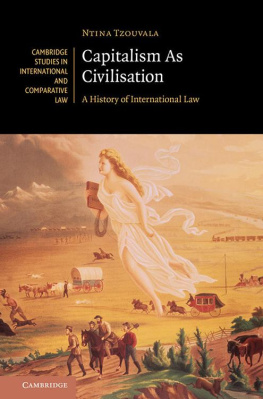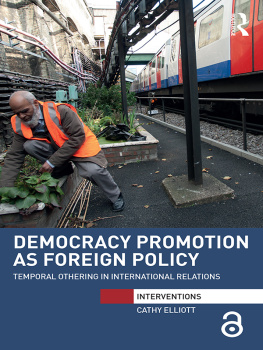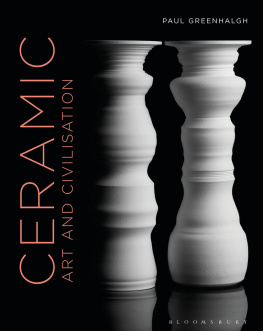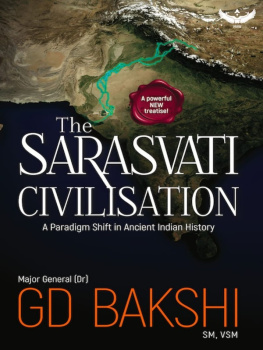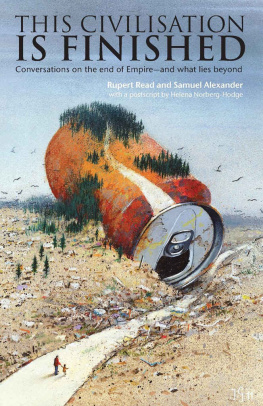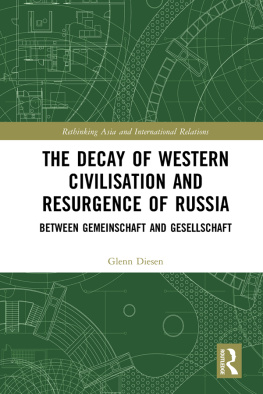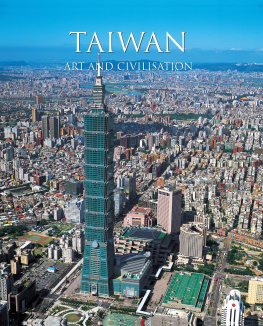Capitalism As Civilisation
Methodologically and theoretically innovative, this monograph draws from Marxism and deconstruction bringing together the textual and the material in our understanding of international law. Approaching civilisation as an argumentative pattern related to the distribution of rights and duties amongst different communities, Ntina Tzouvala illustrates both its contradictory nature and its pro-capitalist bias. Civilisation is shown to oscillate between two poles. On the one hand, a pervasive logic of improvement anchors legal equality to demands that non-Western polities undertake extensive domestic reforms and embrace capitalist modernity. On the other, an insistent logic of biology constantly postpones such a prospect based on ideas of immutable difference. By detailing the tension and synergies between these two logics, Tzouvala argues that international law incorporates and attempts to mediate the contradictions of capitalism as a global system of production and exchange that both homogenises and stratifies societies, populations and space.
Ntina Tzouvala is a Senior Lecturer at the Australian National University College of Law. Her research focuses on the political economy, the history, and the theory of international law.
Cambridge Studies in International and Comparative Law: 142
Established in 1946, this series produces high quality, reflective and innovative scholarship in the field of public international law. It publishes works on international law that are of a theoretical, historical, cross-disciplinary or doctrinal nature. The series also welcomes books providing insights from private international law, comparative law and transnational studies which inform international legal thought and practice more generally.
The series seeks to publish views from diverse legal traditions and perspectives, and of any geographical origin. In this respect it invites studies offering regional perspectives on core problmatiques of international law, and in the same vein, it appreciates contrasts and debates between diverging approaches. Accordingly, books offering new or less orthodox perspectives are very much welcome. Works of a generalist character are greatly valued and the series is also open to studies on specific areas, institutions or problems. Translations of the most outstanding works published in other languages are also considered.
After seventy years, Cambridge Studies in International and Comparative Law sets the standard for international legal scholarship and will continue to define the discipline as it evolves in the years to come.
Series Editors
Larissa van den Herik
Professor of Public International Law, Grotius Centre for International Legal Studies, Leiden University
Jean dAspremont
Professor of International Law, University of Manchester and Sciences Po Law School
A list of books in the series can be found at the .
Capitalism As Civilisation
A History of International Law
Ntina Tzouvala
Australian National University College of Law
University Printing House, Cambridge CB2 8BS, United Kingdom
One Liberty Plaza, 20th Floor, New York, NY 10006, USA
477 Williamstown Road, Port Melbourne, VIC 3207, Australia
314321, 3rd Floor, Plot 3, Splendor Forum, Jasola District Centre, New Delhi 110025, India
79 Anson Road, #0604/06, Singapore 079906
Cambridge University Press is part of the University of Cambridge.
It furthers the Universitys mission by disseminating knowledge in the pursuit of education, learning, and research at the highest international levels of excellence.
www.cambridge.org
Information on this title: www.cambridge.org/9781108497183
DOI: 10.1017/9781108684415
Ntina Tzouvala 2020
This publication is in copyright. Subject to statutory exception and to the provisions of relevant collective licensing agreements, no reproduction of any part may take place without the written permission of Cambridge University Press.
First published 2020
A catalogue record for this publication is available from the British Library.
Library of Congress Cataloging-in-Publication Data
Names: Tzouvala, Ntina, author.
Title: Capitalism as civilisation : a history of international law / Ntina Tzouvala, University of Melbourne.
Description: Cambridge, United Kingdom ; New York, NY, USA : Cambridge University Press, 2020. | Series: Cambridge studies in international and comparative law | Based on authors thesis (doctoral - Durham University, 2016) issued under title: Letters of blood and fire : a socio-economic history of international law. | Includes bibliographical references and index.
Identifiers: LCCN 2020012559 (print) | LCCN 2020012560 (ebook) | ISBN 9781108497183 (hardback) | ISBN 9781108739559 (paperback) | ISBN 9781108684415 (epub)
Subjects: LCSH: International lawMoral and ethical aspects. | International lawSocial aspects.
Classification: LCC KZ1256 .T96 2020 (print) | LCC KZ1256 (ebook) | DDC 341.09dc23
LC record available at https://lccn.loc.gov/2020012559
LC ebook record available at https://lccn.loc.gov/2020012560
ISBN 978-1-108-49718-3 Hardback
Cambridge University Press has no responsibility for the persistence or accuracy of URLs for external or third-party internet websites referred to in this publication, and does not guarantee that any content on such websites is, or will remain, accurate or appropriate.
Contents
Acknowledgements
At an age when all our interactions ought to be subject to measurement, quantification and evaluation, many colleagues, friends and mentors took the time to think with and (productively) against me. This project began as my doctoral dissertation, which I undertook at Durham Law School between 2012 and 2016. There, I was lucky enough to be supervised by Gleider I. Hernndez, whose patience, intelligence and good humour helped me to continue when everything seemed a bit too much. Aoife ODonoghue not only helped me with this arduous process but she has since read and commented on parts of this monograph with sharpness and warmth that attest to her feminist ethos. Alice Panepinto, Rumy Grozdanova-Van Ark, Alan Greene, Andrs Delgado Casteleiro and Tom Sparks were the best writing, thinking and beverage-drinking companions I could have wished for. Cesare Aloisi and Massimiliano Rota fed me and helped me solve social issues. They still do, albeit from a distance.
In late 2016, I moved to Australia to take up a position with the Laureate Program in International Law at Melbourne Law School. I am grateful to Anne Orford for her intellectual generosity, her ability to foster a truly welcoming but challenging environment and her good advice on matters of international law and beyond. My fellow team members, Marnie Lloydd, Fabia Veoso, Sebastian Machado, Amber Withers, Wendy Chen and Jack Stanovsek, listened to my rants gracefully and steered me back in the right direction. Anna Saunders has always been willing to ask the hard questions and share a cup of tea. Lus Bogliolo has been a true comrade, with all the gravity this word carries. Thanking Kathryn Greenman would require its own section (if not book), so I am going to leave it here. I am also deeply indebted to my Melbourne Law School students. Their lively interest, original thinking and wit kept me on my toes and gave me hope for the future when things seemed hopeless. Melbourne Law School supported my research in multiple ways, including by granting me Research Support Funds and a Research Excellence Grant. I deeply appreciate this institutional commitment to helping junior researchers such as myself.

